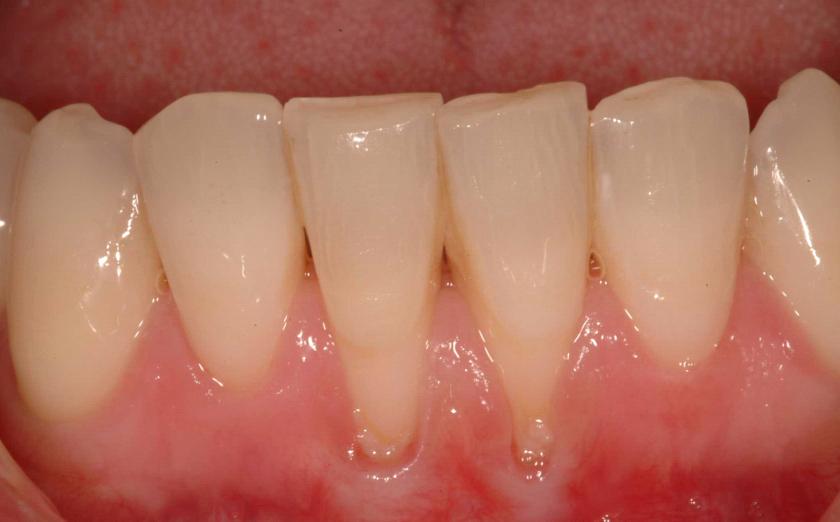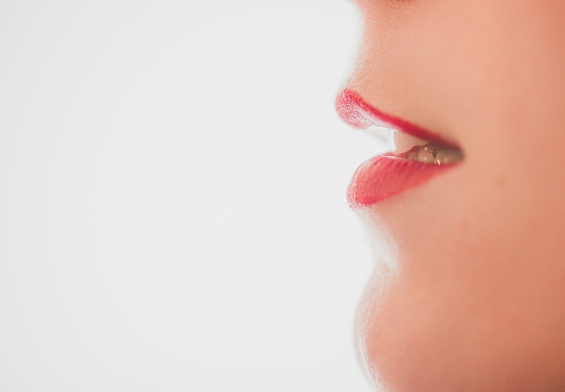 When you hear people talking about ‘recession,’ they’re never talking about anything good. An economic recession can have an impact on your wallet, your job, and your lifestyle. And, believe it or not, so can gum recession. Recessed, or receding, gums can cause bacteria to build up in your mouth. They can cause gaps to form between the teeth. They can even cause the roots of teeth to become exposed, and that can cause pain. So what causes gum recession? Is it something that happens with age, or can young people have recessed gums, too? And, the most important question of all is there anything you can do to prevent gum recession? These are some of the most common dental questions asked of dentists concerning recessed gums.
When you hear people talking about ‘recession,’ they’re never talking about anything good. An economic recession can have an impact on your wallet, your job, and your lifestyle. And, believe it or not, so can gum recession. Recessed, or receding, gums can cause bacteria to build up in your mouth. They can cause gaps to form between the teeth. They can even cause the roots of teeth to become exposed, and that can cause pain. So what causes gum recession? Is it something that happens with age, or can young people have recessed gums, too? And, the most important question of all is there anything you can do to prevent gum recession? These are some of the most common dental questions asked of dentists concerning recessed gums.
Definition of gum recession
Receding gums occur when gum tissue pulls back, exposing more tooth surface. Sometimes gums may even pull back far enough to expose the roots of teeth. When gums recede, they can form gaps in between where the gums end, or the gum line, and where the visible part of the teeth begins. This process can be a breeding ground for bacteria, and that means that bacteria buildup is much more likely to occur. One of the most significant complications of gum recession is that supporting and surrounding structures such as tissue and bone can become damaged. Gums are meant to protect and support teeth, and when they recede, damage can ensue. The first signs of receding gums typically are tooth sensitivity and the appearance that teeth being longer than normal.
Causes of gum recession
Receding gums have a number of causes. Some of the causes can be prevented, while others occur without provocation due to such things as heredity or injury. Here’s a list of the most common causes of gum recession:
Poor dental hygiene routine
Poor dental hygiene undoubtedly is one of the most common causes of most oral health problems, including gum recession. In most cases, all it takes to maintain healthy teeth and gums is twice-daily brushing, once-daily flossing, and regular twice-yearly visits to your family dentist for a professional cleaning.
Aggressive dental hygiene routine
By the same token, brushing too aggressively or with toothpaste that contains harsh abrasives can also cause gum recession. Choose mild toothpaste and a soft-bristled toothbrush for your twice-daily brushing routine. Don’t brush too hard; just let the paste and bristles do their job.
Dental diseases
Dental diseases such as gum infections and tooth decay damage the tissue of the gums and can even damage supporting bone structures that hold the teeth in position. In fact, these types of diseases are the number one reason that gums recede.
Heredity
Having a family history of gum disease or receding gums is another major factor of gum recession. It’s estimated that as much as a third of the population in the country is predisposed by heredity to developing gum disease.
Use of tobacco products
Tobacco users are at a much greater risk of developing problems with their teeth and gums, including gum recession. All tobacco products cause bacteria buildup on the teeth that leads to plaque that’s hard to remove.
Mouth piercings
Piercings that include the lips or tongue are fast becoming a major factor in all manner of problems with the teeth and mouth, including gum recession. In fact, recent studies show that those with mouth piercings are more than 10 times more likely to develop receding gums because jewelry from piercings can irritate gums and cause tissue to wear away and pull back from teeth.
Prevention of gum recession
Following is a list of some of the best ways of preventing gum recession:
- Eat a healthy diet that includes vital nutrients and crunchy, raw vegetables that help to clean teeth naturally.
- Observe proper dental hygiene by brushing at least twice daily, flossing at least once daily, and visiting your dentist for a professional cleaning twice yearly.
- Quit the use of all tobacco products.
- Lose the mouth piercings, especially if you’re already experiencing mouth irritation or infections.
- Watch for signs of changes within your mouth, especially gum sensitivity and longer-than-normal appearance of teeth.
Receding gums don’t just affect your appearance. They can affect your oral health, and that can have an impact on your wallet and your lifestyle. Because gum recession can lead to numerous oral health problems, it’s important to care for teeth properly in order to prevent gums from receding in the first place. Be sure to ask your dentist all the oral health questions you have about receding gums on your next dental bi-yearly dental appointment.


